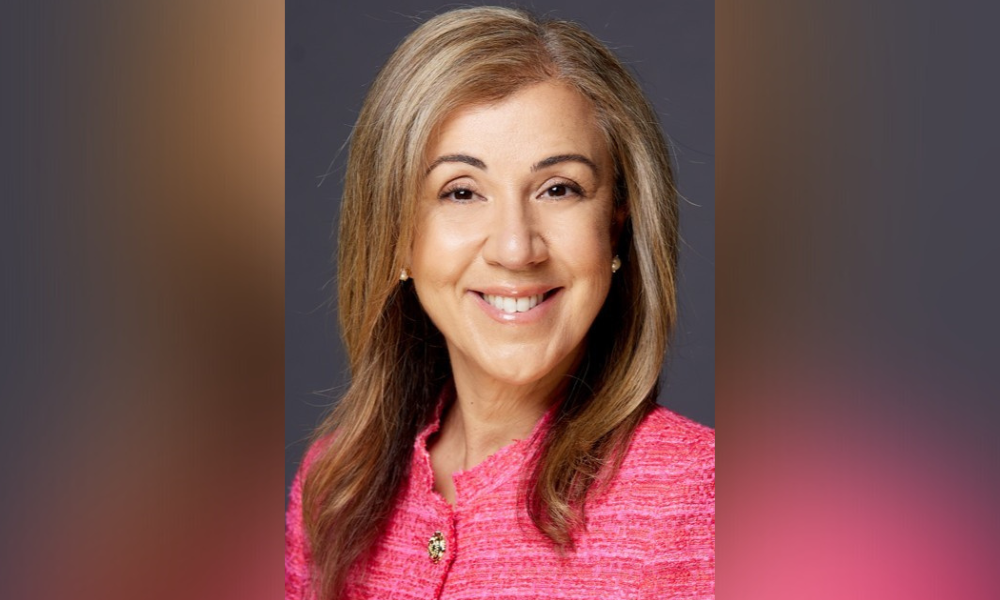Title insurance president, Toronto police detective discuss big changes in types of real estate crime

Fraudulent actors have long been a feature of Canada’s mortgage landscape – but the types of crime being attempted have evolved in recent years, according to the president of a title insurance giant.
Daniela DeTommaso (pictured), of FCT, told a recent panel discussion hosted by the company that forms of fraud on the rise included efforts by individuals to place a mortgage on a property they didn’t own before absconding with the funds, while title fraud – theft of a property from an unsuspecting homeowner – has also seen an uptick in cases.
Previously, so-called fraud for shelter was the most common form of mortgage fraud, whereby an individual falsifies their own documents to qualify for a larger loan than they would otherwise be eligible for.
“They could claim that they make more money than they do, they may create false employment letters, or they may actually have the value of their property overstated,” DeTommaso said. “And that is what we would typically deal with, and in the earlier years we saw more of that type of fraud.”
Fellow panelist Adkin Holder, a detective with the financial crimes division of the Toronto Police Service, said law enforcement had also noted an increase in title fraud cases, a trend he attributed to the outbreak of the COVID-19 pandemic in 2020.
“We’ve been seeing a rise in mortgage fraud that is an actual title, where they impersonate the homeowner and sell the property without the real homeowner knowing,” he said. “When it comes to mortgage fraud, it’s becoming more severe, and it’s… coming through COVID times.
“A lot of the applications and the process to get a mortgage were done virtually, so the lawyer would meet the client virtually. Nobody met anybody in person, and that kind of brought on mortgage frauds, people signing documents virtually and nobody actually meeting anybody.”
Some tips to protect yourself from #mortgage fraud during this #FraudAwarenessMonth👇:
— CMHC (@CMHC_ca) March 14, 2023
✔️Use a licensed mortgage & real estate professional
✔️Have the property inspected before buying
✔️Ensure your deposit is held in trust by the vendor’s realty company or a lawyer/notary pic.twitter.com/H94lb8NaQi
Why are mortgage fraud types changing?
DeTommaso said the prominence of virtual solutions thanks to the pandemic had opened the door to higher rates of fraud, and highlighted shifting trends in the real estate process as another contributing factor a larger number of cases.
“What we’ve seen is COVID accelerated the rate and the opportunity for identity theft and fraud generally. Given that we were operating in a virtual world, it made it easier for frauds to happen,” she said.
“Additionally, we don’t live in a time where we know everybody we deal with. Gone are the days where we were friends with our realtor, we dealt with them, they lived in our community – we now have a broader network, and oftentimes the first time we meet with people that we’re dealing with… is in the course of transactions, so there isn’t that same intimacy in relationships that we enjoyed previously.”
Other potential harbingers of mortgage fraud include a prominent presence on social media – for instance, fraudsters realizing through Airbnb that a homeowner isn’t residing in a property and is instead renting it out – as well as vacant possession and absentee ownership, which DeTommaso said provide “fertile ground” for those fraud types.
Greater awareness, tougher measures required on mortgage fraud
Stricter penalties for financial crimes could act as a strong deterrent against fraudulent behaviour, she added, as well as better access for realtors to third-party technology providing a deeper safeguard against specific fraud types.
For DeTommaso, the industry as a whole also has a responsibility to act, conducting thorough due diligence and learning to recognize red flags.
“I would like to see more awareness around these types of things… As an industry, I think we have to stay on top of this in terms of prevention and as professionals in the industry, I think it’s really important that you follow your gut,” she said.
“If you don’t know your customer, make sure that you’re asking for additional information, asking more questions – and a lot of this is very intuitive, which again is why we play such an important role there, because we live this every day.”
Holder emphasized the importance of knowing your client, particularly those who have recently appeared on the scene and aren’t already a part of a real estate or mortgage professional’s existing network.
“That’s not for the client that you’ve historically been with over the past 10 years and you’ve done many deals with,” he said. “It’s for the client that you’ve only had contact with through email or through a cellphone and the client can never meet in person, is always busy, can’t do certain things, give you a reference of somebody, how they got your name, [or] it’s a very generic reference,” he said. “Those are the ones you’ve got to go further in proving who that person is.
“When you get identification from someone that you’re required to look at, actually look at that identification and compare it with the person… Don’t just take the identification, photocopy it, and then continue on.”
How are you remaining vigilant against different types of mortgage and real estate fraud? Let us know in the comments section below.



